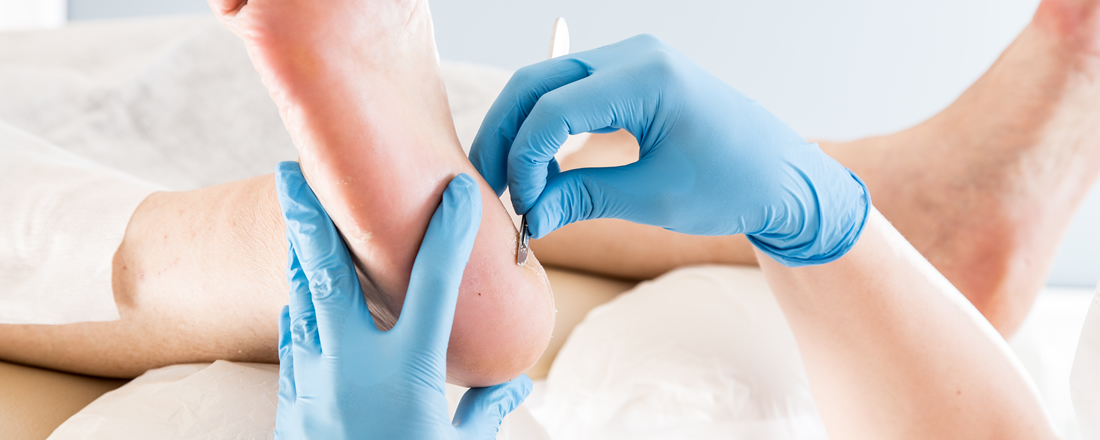
Diabetic Foot Health
One in 15 people in the UK have diabetes, including one million people who have type 2, but haven’t been diagnosed. Diabetes melllitus is a complicated condition and there are many different types of diabetes.
What is diabetes?
Diabetes is a serious condition where your blood glucose level is too high. It can happen when your body doesn’t produce enough insulin or the insulin it produces isn’t effective. Or, when your body can’t produce any insulin at all.
Types of diabetes
There are two main types of diabetes: type 1 and type 2.
When you’ve got type 1 diabetes, you can’t make any insulin at all. If you’ve got type 2 diabetes, it’s a bit different. The insulin you make either can’t work effectively, or you can’t produce enough of it. They’re different conditions, but they’re both serious.
Other types of diabetes include gestational diabetes, which some women may go on to develop during pregnancy. And there are many other rarer types of diabetes such as type 3c and Latent Autoimmune Diabetes in Adults (LADA) too.
In all types of diabetes, glucose can’t get into your cells properly, so it begins to build up in your blood. And too much glucose in your blood causes a lot of different problems. To begin with, it leads to diabetes symptoms.
What causes diabetes?
What all types of diabetes have in common is that they cause people to have too much glucose (sugar) in their blood. But we all need some glucose. It’s what gives us energy. We get glucose when our bodies break down the carbohydrates that we eat or drink. And that glucose is released into our blood. Our body uses a hormone called insulin which is made by our pancreas. This is released into the blood when needed and causes the glucose in the blood to enter our cells and fuel our bodies. When you have diabetes this system doesn’t work and the result is too much sugar in our blood.
Symptoms of diabetes
The common symptoms of diabetes include:
- Going to the toilet a lot, especially at night
- Being really thirsty
- Feeling more tired than usual
- Losing weight without trying to
- Genital itching or thrush
- Cuts and wounds take longer to heal
- Blurred vision
Diabetes complications
Over a long period of time, high glucose levels in your blood can seriously damage your heart, your eyes, your feet and your kidneys. These are known as the complications of diabetes.
How does diabetes affect my feet
Having diabetes means you’re at much greater risk of developing foot problems. But understanding how diabetes affects feet can help you avoid these complications. Over time, high blood glucose levels can damage the arteries and nerve systems in your body. Damaged nerves can prevent important messages getting to and from your brain. As the nerves to your legs and feet are the longest ones, they are most likely to be affected. Nerve damage is called neuropathy, and it can lead to a loss of sensation which results in injuries or conditions such as diabetic foot ulcers to go unnoticed. Neuropathy can also cause pain (painful neuropathy).
But with regular footcare and the right treatment and advice, people with diabetes can live a healthy life and prevent complications.
What can I do to help reduce complications?
- Check your feet daily for any lesions
- Eat a healthy diet which is low in carbohydrates (avoid biscuits, cakes, sweets, bread, rice, potatoes and starchy vegetables)
- Keep active
- See a podiatrist regularly to have your feet checked
- Control blood sugar levels


